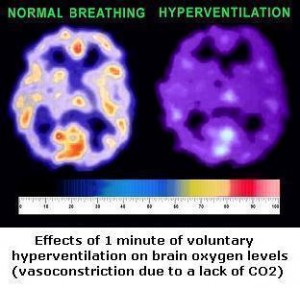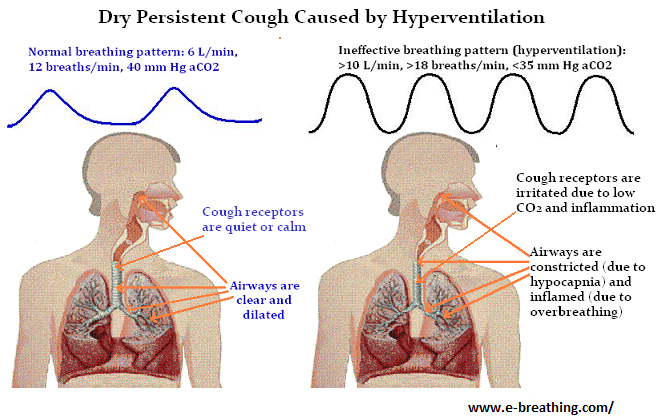Causes of dry cough and home remedies for dry cough
 of the most common causes of dry cough are inclusive of health problems like bronchitis, asthma, cystic fibrosis, COPD, respiratory infections and a number of other lung related conditions. Dry cough also tends to get worst during sleep or at night, on exertion and particularly after meals.
of the most common causes of dry cough are inclusive of health problems like bronchitis, asthma, cystic fibrosis, COPD, respiratory infections and a number of other lung related conditions. Dry cough also tends to get worst during sleep or at night, on exertion and particularly after meals.
Air typically travels through the nasal cavities during normal breathing at a speed of about 8 km/h. However, when we start coughing via the mouth, the air tends to rush out via the airways at about 120-160 km/h. This triggers significant mechanical stress or irritation, and sudden CO2 losses with the following effects of alveolar hypocapnia or low CO2 levels in the airways: irritable state of the cough receptors, bronchospasm or constriction of airways, and substantial mechanical friction in the airways due to sudden strong air flow etc. Moving on, because of a reset in the breathing center, irritation of airways and overbreathing become chronic.
To begin with, there are countless scientific publications that have shown an apparent link between hyperventilation and reduced body-oxygen content because of alveolar hypocapnia (low CO2 levels in the lungs). Apart from that, there are extensive medical research based evidences that have shown that low CO2 has the potential to over-excite nerve cells and makes them more irritable. The over-excitement of the nerve cells additionally impacts nerve cells that control the urge-to-cough reflex that is typically triggered after increased irritation in the upper airways or chest. The problem get worse at nighttime when in bed, especially during supine sleep position.
Causes of bouts of coughing
 1. Irritable state of cough receptors located in the tracheobronchial tree and larynx because of low CO2 in the nerve cells or hypocapnia
1. Irritable state of cough receptors located in the tracheobronchial tree and larynx because of low CO2 in the nerve cells or hypocapnia
2. Constriction of airways caused by hypocapnia considering that CO2 is an effective bronchodilator
3. Chronic respiratory infections and inflammation caused by suppression of the immune system, which is also triggered by cell hypoxia and other effects that are caused by hyperventilation
Coughing via the moth is extremely dangerous considering that it has the potential to create a massive air pressure graduate that can easily damage, or perhaps even rupture the alveoli, which are tiny air sacks that enable the lungs to perform gas exchange. Coughing particularly poses extensive anger to people who suffer from emphysema or bronchitis. Because of purely mechanical effects, coughing triggers:
1. Damage and eventually rupture fragile alveoli or air sacks because of massive pressure gradient and sudden change in air pressure within the tissues of the lungs – remember that lung tissue is extremely weak, and gets damaged rather easily because of mechanical overstimulation triggered by coughing
2. Mechanical irritation of the constricted and inflamed airways because of substantial movement of air and excessive friction because of sudden changes in pressure
What this means is that the more you cough (particularly via the mouth), the more CO2 you will eradicate from the body, and the worse your symptoms are going to become. This is true at night when someone sleeps in a horizontal position.
Natural home remedies for dry cough
It was also discovered by these doctors that this symptom typically disappears as soon as the patients slow down their automatic breathing, and achieve over 20 s for the body-oxygen test.
[end_tabset]


